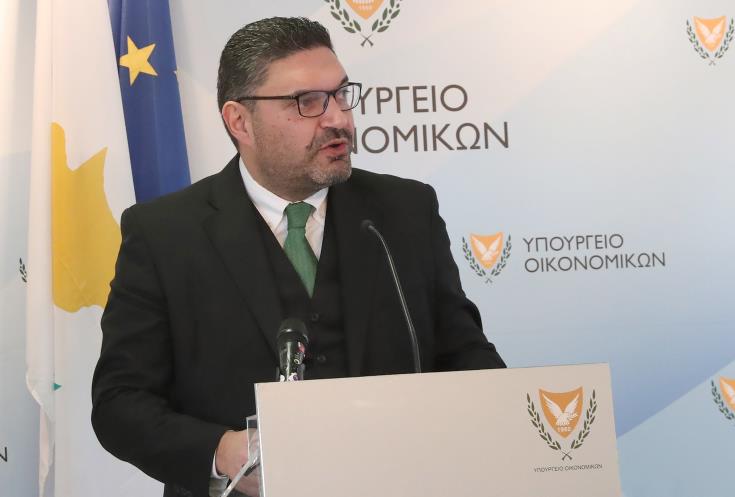Finance Minister Constantinos Petrides warned on Monday that “tectonic shifts are underway” as he warned that the days of cheap energy and cheap money are over.
Petrides made the comments as discussions in parliament are underway over the 2023 budget, with some criticising the spending plans – but the finance minister insisted that we must adjust to a “new reality”.
“We will have to readjust the entire economic policy and society to the new reality… And the new reality is based on two things: forget cheap energy – which built the EU’s wealth over the past 30 years – and forget cheap money,” he told Sigma.
Petrides explained while energy prices are unlikely to rise much higher he said that even if inflation does come down – which could still take up to a year-and-a-half, barring any further major shocks – the energy prices will remain high.
He said prices will remain high considering the EU’s green transition and the Fit for 55 policies.
As for the access to ‘easy money’, Petrides said: “The cheap money which we were getting either for loans, or for consumption or whatever else – it won’t return, as I see it, within the next ten years.”
“So, seismic shifts are underway,” he said.
The minister was asked what this all means for the pressures faced by the public, that loans are hard to come by while rents are sky high.
“The fact that rent is sky-high is linked to what I’ve been saying, and what I’m saying is that this adjustment will be very difficult because the wrong policies have been enacted – particularly in terms of monetary policies in the past.
“We must be aware of this and tell the public the truth: that the coming years will be difficult and monetary policies will impact people to a greater degree than they have previously,” he said.
The minister was also pressed on the stated aim of reducing inflation to 3-3.5 per cent, to which he replied that: “Yes, it’s feasible – but it’s not certain.”
Asked whether the budget will aim to reduce inflation, Petrides argued that it cannot be lowered through a national budget – “whoever tells you that they have the tools in Cyprus, or any other country on their own, to lower inflation then they are simply deceiving you: inflation is imported”.
He said that the price of oil has gone up 80 per cent and that creates chain reactions, with two thirds of inflation linked to those consequences.
Petrides instead offered that the budget can aim to adapt against the impact of inflation, achieved through the increase in income from direct taxation – along with greater development and bolstering the welfare state.
He explained that the key point of increasing interest rates is to make lending money more expensive, therefore reducing consumption and whittling away at inflation by reducing the money in circulation – “that’s the logic”.
“We’ve been speaking for a while now that the price of wheat, wood and construction materials have all gone up – well, when you follow a loose monetary policy, when everyone is borrowing and mortgages are flying… all that consumption and demand raises the prices,” Petrides said.







Click here to change your cookie preferences